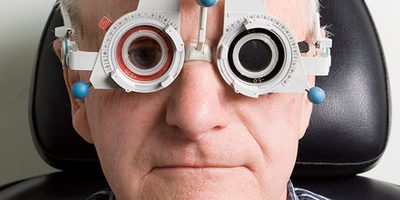
The George Institute receives $13m boost in research funding
Australia's National Health and Medical Research Council has awarded The George Institute for Global Health $13 million for research in its 2013 round of grants. The selection of projects represents a cross section of The George Institute's research priorities and collaborations across Australia, China and India.
Better pain management for sciatica
Sciatica is a severe, disabling form of back pain characterised by radiating leg pain and slow recovery, and is a major economic and social burden. Without clinical guidelines for the management of sciatica in Australia, there is an urgent need to identify an effective treatment. Dr Christine Lin and her colleagues have received funding for the PRECISE trial, which will examine whether pregabalin, a simple promising treatment, can reduce leg pain intensity in sciatica and is cost-effective.
Preventing falls and injury among cataract patients
Vision impairment from cataract affects around 1.7 million Australians and cataract surgery is the most commonly performed elective surgery in Australia. Cataract occurs in older age and there is a heightened risk of falling and subsequent injury among people with impaired vision from a cataract. Dr Lisa Keay and her colleagues have received funding for a study that will help develop strategies for reducing falls and preventing injury among cataract patients and collaborating with the ophthalmic health care sector to put these in place.
Preventing unnecessary kidney failure
Kidney failure shortens the life of those affected, reduces quality of life and is expensive to treat. IgA Nephropathy is an abnormal activity of the immune system that causes kidney damage and affects mostly young people. It is one of the most common causes of kidney failure but there is no specific treatment. Professor Vlado Perkovic and his colleagues have received funding for the TESTING study, a global study that will assess whether steroids safely prevent kidney failure. The study will initially be done in collaboration with hospitals in China, with patients from Australia, India, and other countries currently being enrolled in the study.
Using text messaging to prevent a second heart attack
Cardiovascular disease is the leading cause of death around the world, but those surviving a heart attack despite being at very high risk of having a second incident or dying are not adhering to their treatments. Dr Clara Chow and her colleagues have received funding for an innovative study, the largest of its kind, to examine the use of text messages as a way to improve patient adherence to medication and a heart healthy lifestyle, and subsequently prevent a second attack. As mobile phones are widely available, this research is potentially applicable to other preventative health programs in Australia and around the world.
Reducing salt intake to tackle cardiovascular disease
There has been ongoing debate about whether cutting salt out of the diet will reduce the risk of stroke and heart attack, two leading causes of death worldwide. While most experts believe that reducing salt consumption has the potential to be one of the most cost effective and high impact strategies for improving global health, a key piece of additional research is required to delivery policy change. Professor Bruce Neal and his colleagues have received funding for a world first, large scale trial in China that will examine the impact of a reduced salt diet on the risk of cardiovascular disease.
Affordable rehabilitation for stroke survivors
Stroke is a leading cause of death and disability in developing countries with many stroke survivors left with significant disability and in need of ongoing care. Many people in developing countries have no access to stroke rehabilitation and the Western models of care are unaffordable. Professor Richard Lindley and his colleagues have received funding to evaluate whether a family-led stroke home-based rehabilitation program is effective and affordable in low and middle income countries such as India (where the trial will take place), compared to usual care methods.
E-health solutions to close the gap in health care
Few people at high risk of heart attack and stroke follow best practice recommendations to lower their risk. Innovative strategies to help people with or at risk of cardiovascular disease and doctors access the most effective treatments are needed. Now that all Australians have an electronic health record, consumer focussed e-health solutions are becoming a key part of the health system. Despite the scale of this initiative, few people are aware of it and there is little research on the factors that will support its uptake. Associate Professor David Peiris and his colleagues have received funding to see if a consumer-focussed e-health strategy will lower people's risk of heart attack and stroke. The study builds on our previous work directed at GPs and will be implemented via General Practices and Aboriginal Medical Services across Australia.
Fellowships and partnership grants
Dr Isuru Ranasinghe and Dr David Peiris were awarded NHMRC research fellowships and Professor Alan Cass, Dr Martin Gallagher and Associate Professor Sophie Soungas a partnership grant with Monash University and several hospitals for their work on new models of care delivery for diabetes patients.




